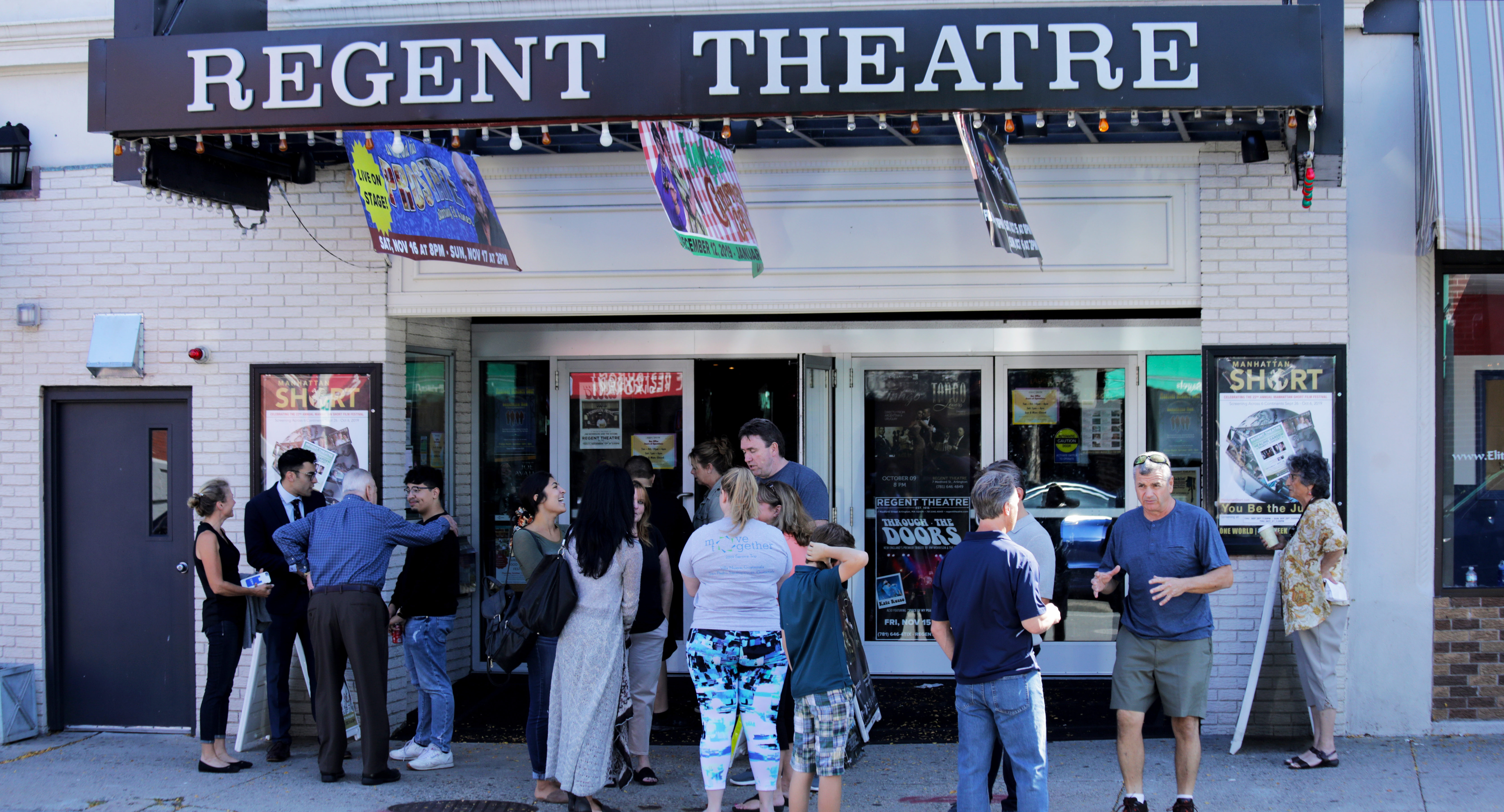
Northeastern University student Emilio Guido has produced and directed a documentary about a Holocaust survivor named Theofanis Orfanos, a Greek native who was captured by Nazi Germany forces at fifteen years old. Emilio, who is studying Communication Studies and Media and Screen Studies, has spent much of the last year dedicated to researching, compiling archival footage, shooting, and editing the film – all with the goal of sharing this man’s powerful and rich story. The final product, Laugh Now: A Perspective on Life, Liberty & the Holocaust, has now officially been released. It been showcased at two screenings so far; one at the Arlington Regent Theater and the other at the Robbins Library, also in Arlington, which is where the first interview for the film was shot. Emilio, in partnership with Northeastern’s Jewish Studies Program, is now bringing the documentary to Northeastern. It will be showcased on November 13, 2019 at 7 p.m. in the ISEC Auditorium, with a post-screening discussion to follow at the Alumni Center.
Emilio came across Theofanis Orfanos’s story by chance, through a series of introductions and connections. It all started when Theofanis’s son wanted to share his father’s story, one of survival and perseverance. Theofanis was captured by Nazis in his home country of Greece and was dragged to a forced labor camp in Germany; against the odds, he not only survived this experience but overcame it and went on to live a full and prosperous life.
The initial vision for his story was to share it through a written project – but when Emilio heard about the incredible journey, he knew it was something that had to be captured and communicated through visuals. To talk more about the next steps, Emilio met Theofanis, and was captivated by the 92-year-old’s openness and charisma. More importantly, he was in awe of Theofanis’s journey, and the project took off from there.
Through this documentary, I hope that viewers can experience Theofanis’s life story in a way that is close to how he, himself experienced it.
“His Holocaust survival story is unique in that he is not Jewish, but rather, was captured for being part of the resistance movement against Nazis. He is able to share the experience and perspective of being Greek during this time,” said Emilio, who is a senior graduating next May.
As part of his research for the film, Emilio collected a lot of historical knowledge about the time period and the cultural dynamics. He wanted to ensure Theofanis’s stories were framed for viewers with an accurate and digestible historical context.
“Theofanis told so many stories,” added Emilio.
I tried to pack as many as I could in 46 minutes so each viewer can take away different stories.
One aspect of this project that stands out to Emilio is how gracious Theofanis is despite all that has happened to him in his life, which viewers will see right away in the film.
“Theofanis tells his story so vividly,” said Emilio. “I tried to do the best I could to tell it visually from his perspective so we could get as close as we can to experiencing it the way he did. There is no hate in his heart; he tells stories of supporting his family, complete strangers, and the importance of a humanity that works together.”

Emilio, who is an Executive Producer of NUTV, Northeastern’s only student-run video production club, directed all aspects of the film himself. He has experience in filmmaking, having made two short films before: Echoes of What Used to Be and Catch Your Breath. His dedication highlights the passion that so many students at Northeastern have for their crafts – and all of the work they are willing to put into their creative visions. Emilio coordinated everything from renting equipment to scheduling the interviews to handling all the editing and audio mixing. He worked with a Berklee College student on the score, and has also been working with Northeastern’s Jewish Studies Program to spread the word of the project. The Jewish Studies Program also provided a student research grant to support the project; CAMD Professor Nathan Blake served as the faculty advisor under this grant.
“I am very excited about sharing this film with the Northeastern community and beyond,” Emilio concluded. “Holocaust stories tend to be just about the Holocaust itself, but surviving and growing beyond those months or years is a critical part of the experience that should also be told. This was a project that was just too important to pass up, and I hope everyone who sees the film can learn something from the stories Theofanis shares with us.”


